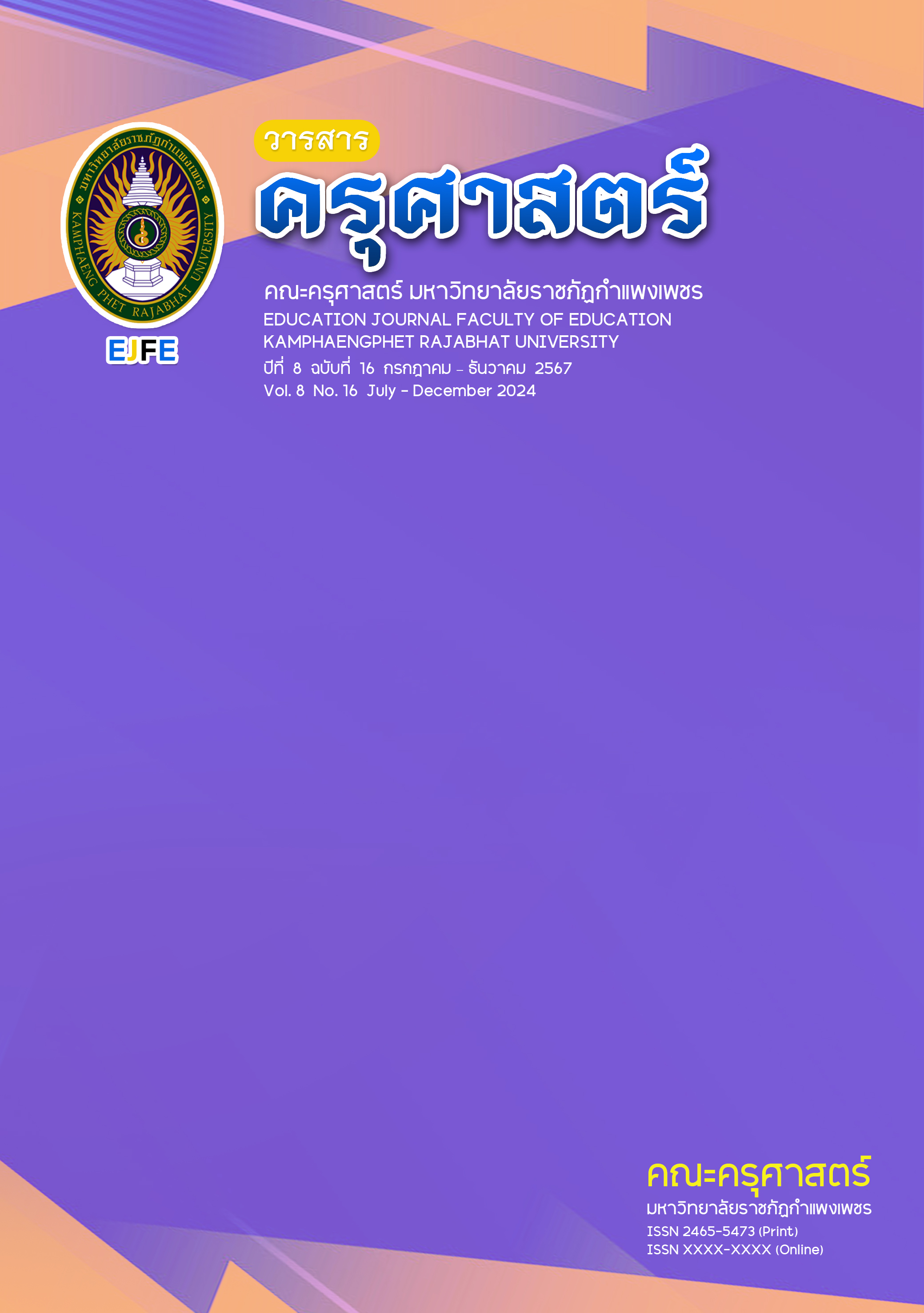DESIGNING GAME CARDS FOR LEARNING THAI –VIETNAMESE VOCABULARY BY ONESELF
Main Article Content
Abstract
This research aims to create game cards that promote self-learning of Thai vocabulary among Vietnamese students and to evaluate the effectiveness of self-learning with these game cards, using a pre-test and post-test criterion of 70%. Additionally, it studies the satisfaction level of Vietnamese students towards learning using self-made vocabulary game cards. The sample group for this research consists of 27 first-year students studying Thai language in the Bachelor of Arts program at the University of Foreign Language Studies, The University of Danang, Vietnam.
The research tools used include:
- Game cards designed to promote learning of 104 Thai vocabulary words, including 52 Thai words and 52 Vietnamese words related to daily life fruit names.
- A pre-test and post-test evaluation of the effectiveness of self-learning using game cards, consisting of 52 subjective questions.
- A satisfaction survey to assess Vietnamese students' satisfaction with learning using self-made vocabulary game cards.
Statistical analysis for this research includes mean scores , standard deviation, and paired sample t-test to compare mean scores. The research findings are as follows:
- The researcher created two sets of game cards containing 104 vocabulary words, divided into 52 Thai words and 52 Vietnamese words, using fruit names in daily life categories.
- The effectiveness of self-learning using game cards among Vietnamese students showed a statistically significant improvement after learning compared to before learning, with a p-value < .05.
- Vietnamese students expressed the highest level of satisfaction with learning using self-made vocabulary game cards
Article Details

This work is licensed under a Creative Commons Attribution-NonCommercial-NoDerivatives 4.0 International License.
CC Attribution-NonCommercial-NoDerivatives 4.0
References
จุฑาทิพย์ กฐินทอง, สุรัตนา อดิพัฒน์. (2565). การพัฒนาผลสัมฤทธิ์การเรียนรู้คำศัพท์ภาษาอังกฤษโดยการจัดการเรียนรู้แบบใช้เกมเป็นฐานสำหรับนักเรียนชั้นมัธยมศึกษาปีที่ 1. Journal of Modern Learning Development 7(4), 320-331.
ณัฐดนัย อินทรสมใจ. (2564). การใช้เกมคำศัพท์ภาษาอังกฤษเพื่อพัฒนาความสามารถในการสะกดคำและจดจำคำศัพท์ของนักเรียนชั้นมัธยมศึกษาปีที่ 3. วิทยานิพนธ์การศึกษามหาบัณฑิต สาขาภาษาอังกฤษ. บัณฑิตวิทยาลัย มหาวิทยาลัยนเรศวร.
บุญชม ศรีสะอาด. (2540). การวิจัยทางการวัดผลและประเมินผล. กรุงเทพฯ: สุวีริยาสาสน์.
ปรียานุช คิมหะจันทร์. (2558). ความสำคัญของความรู้เกี่ยวกับคำศัพท์ในการเรียนภาษาอังกฤษ. วารสารมหาวิทยาลัยคริสเตียน 21(2), 181-189.
รุ่งฤดี แผลงศร. (2554). การกำหนดคำศัพท์พื้นฐานภาษาไทยสำหรับผู้เรียนชาวต่างประเทศระดับต้น. วารสารมนุษยศาสตร์และสังคมศาสตร์ปีที่ 2(2), 165-188.
สำเนา ศรีประมงค์. (2547). การศึกษาผลการใช้เกมคำศัพท์ ประกอบการสอนที่มีต่อความคงทนในการเรียนรู้คำศัพท์ภาษาอังกฤษของนักเรียนชั้นประถมศึกษาปีที่ 5 โรงเรียนอัสสัมชัญระยอง. วิทยานิพนธ์ปริญญาศิลปศาสตรมหาบัณฑิต สาขาวิชาการสอนภาษาอังกฤษในฐานะภาษาต่างประเทศ. บัณฑิตวิทยาลัย มหาวิทยาลัยศรีนครินทรวิโรฒ.
Russell, D. H. (1961). Children Learn to Read. New York : Ginn and Company.


